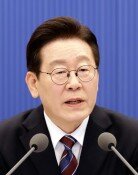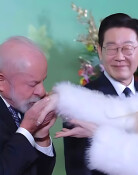[Editorial] Lessons Learned from the Fall of Hwang
[Editorial] Lessons Learned from the Fall of Hwang
Posted December. 24, 2005 03:00,
The fall of the legendary Dr. Hwang Woo-suk is devastating news to Koreans.
We have no choice but to solemnly acknowledge that analyses in the foreign media that Koreas so called faster is better culture was a key element to the recent controversy.
Ignoring procedures and ethical considerations while only thinking about achieving accomplishments is the root of the intentional manipulation of research paper data by Hwangs research team. More than anything, dishonesty led the team to ruin.
Although many obstacles and difficulties still had to be overcome to get from clinical tests to actual treatments, Hwang gave Koreans and terminally-ill patients false hopes by exaggerating his research accomplishments.
Hwangs close political ties are inappropriate for a scientist as well. He included a presidential aide who was not directly involved with the project as one of his co-authors. Hwang also portrayed himself as a pop icon, and he focused on activities outside the boundary of scientific research.
The governments excess expectations of Hwangs work and poor regulation also contributed to the mess. Cheong Wa Dae failed to come up with a proper response, even when it had been reported long ago that the stem cells presented in the paper had been contaminated. This reflects the governments overall culpability in the matter.
The media is also to blame for giving Korean citizens too many expectations of Hwang. The media was too focused on Hwangs research as the first of its kind in the world, and it overlooked critiques from the scientific community. Although it is regrettable that MBC did not follow its broadcast rules in pursuit of its story, it is worth pointing out that the network contributed to finding out the truth.
Some in the science community did not voice their opinions, even when they knew that Hwangs research was exaggerated. However, the young scientists who did point out lapses in the research and who pushed for verification are a testament to the health of the science community.
Should Hwang fade away, biotechnology research including stem cell research should not fade away with him. It is critical that we revitalize stem cell research by rigorously distinguishing real and existent technology from fabrications.
In order to become a society that is never fooled by false myths, we must rationally analyze what went wrong and why. Dong-A Ilbo also intends to take this opportunity to reflect on itself.







